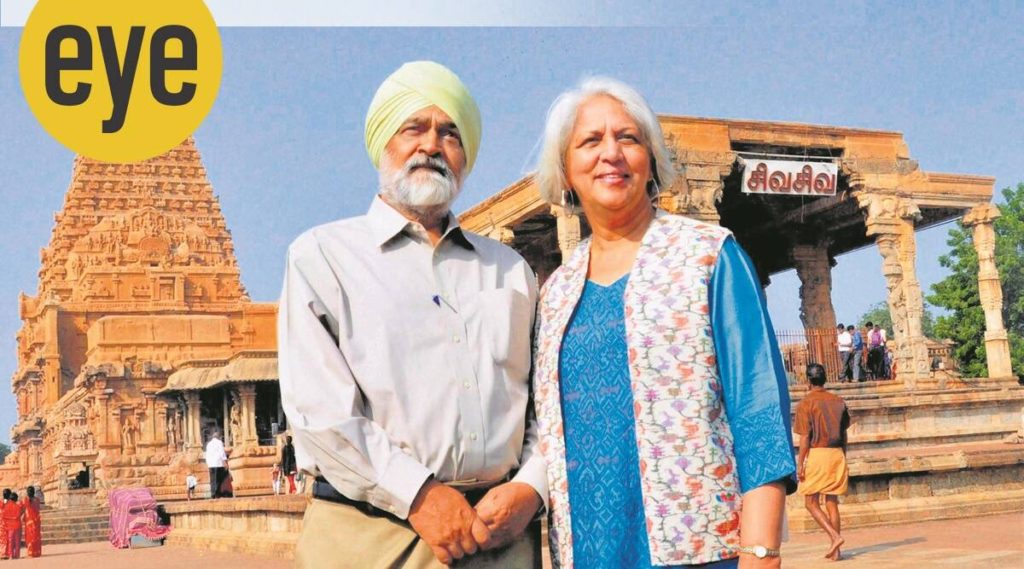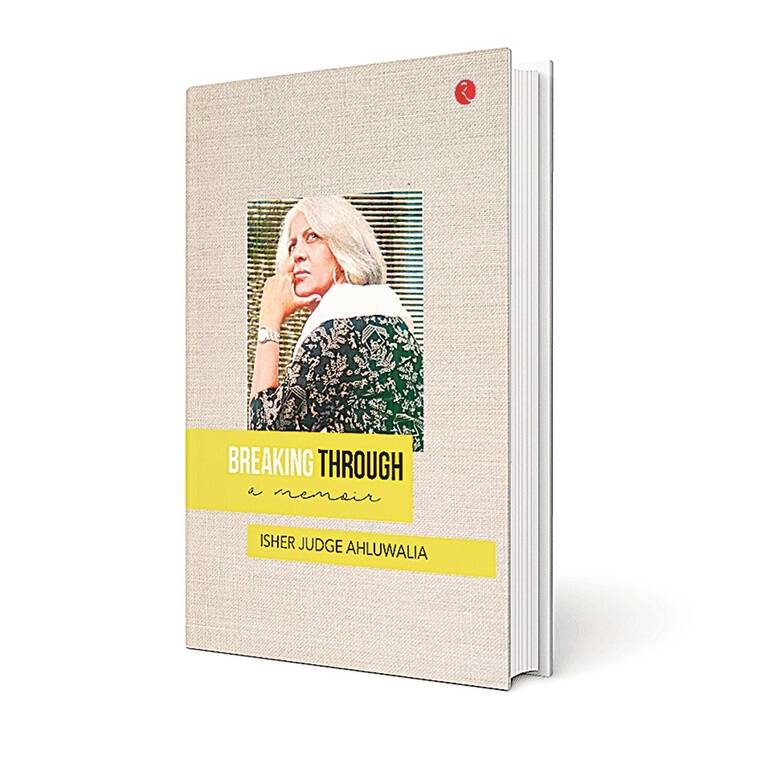In Breaking Through Ahluwalia writes an account of her extraordinary life, career and fight against an implacable disease

At almost the end of her long innings, wracked by grade IV glioblastoma, among the toughest of all cancers, Isher Judge Ahluwalia — grace, charm and subtlety personified, and, with widespread connections — took it upon herself to write this book. Courageous as she is, Isher did so in the most trying circumstances, while she was losing the ability to read and write on her own, relying extensively on help from the family to put down her thoughts.
Yet, thank God that she has written this book, for it is a story of grit, love, care and commitment. Grit, because who would have bet that a daughter of simple, traditional Sikh parents — one of 11 siblings — living in a small, rented flat near Purna Cinema, not far from Calcutta’s Kalighat, would reach where she did, entirely on the strength of her efforts and her intense determination to succeed?
Or, that she would in 1962, finish her West Bengal Higher Secondary Board examination from the highly-regarded Shri Shikshayatan Vidyalaya, coming eighth in the state? She writes, “My father had never shown any interest in our education but when I did well in the exams, he would often tell his friends with some pride that I had got the third rank among girls. While I approved of his new interest in education, I objected to the gender differentiation; I would correct him, saying I was eighth, not third.”

Isher then went to Presidency College, Calcutta, to study economics with a scholarship of Rs 35 per month, which paid for her college fees and the tram ride from home and back. After the Presidency, she joined the Delhi School of Economics for her Master’s degree. “My family would never have let me go to Delhi to live in a hostel. At this point, I had a lucky break. In 1964, my brother decided to move to the capital with his family to start a business and my parents agreed to my going to live with them, attending DSE as a day student.”
As was the case with many of us, DSE was Isher’s road to Damascus — a point of revelation when she was determined to study further and apply for a PhD. Armed with a high first division in a year when seven of the eight ‘first-divers’ were women, Isher applied to Massachusetts Institute of Technology (MIT), where she was accepted with a fellowship. Thus began her journey in Cambridge, Massachusetts, a passage that took a bit longer than necessary because of an interlude in Washington, DC.
In the summer of 1970, Isher applied to the International Monetary Fund (IMF) for a summer internship. Instead of the usual three months, she got a special six-month break from MIT. With that came to love. Soon after moving to DC, she had a date with a super-bright young man, the clever, erudite English-speaking debater from St Stephen’s and winner of a congratulatory first in philosophy, politics and economics from Oxford, one Montek Singh Ahluwalia, who had joined the World Bank as a part of its Young Professionals Program.
Montek impressed Isher sufficiently enough — lunch in the Bank’s Executive Dining Room, films, dinners, walks and drives. “It was during one of those drives, while we were picnicking off some bread and cheese and a glass of wine, that I decided that Montek was the man for me.” Soon, Isher secured a full-time job at the IMF; and, in 1971, she and Montek married in Washington.
Four years passed in setting up home in Georgetown, going with IMF delegations for Article IV consultations in the Caribbean, and working long hours at the Fund. Suddenly, it dawned upon her that she had left her PhD programme behind. So Isher applied for a fellowship at Brookings and completed her MIT thesis from there in 1976 — which was published in 1979 by Macmillan, titled Behaviour of Prices and Outputs in India: A Macro-Econometric Approach.
Then came care. Of parenting two boys — first Pavan, who was born in November 1977; and, then, Aman in October 1979, after the three of them had returned to India for good. Of taking charge of what was an immaculate home and hearth; of looking after a growing family that eventually extended to daughters-in-law and grandchildren; of being a partner to Montek, who would return late at night with stacks of government files.
Then, there was a commitment to her profession. “Being a mother is a full-time job. Being a working mother is two full-time jobs.” Even so, Isher completed two major books: Industrial Growth in India: Stagnation Since the Mid-Sixties (1989, Oxford University Press) and Productivity and Growth in Indian Manufacturing (1991, OUP).
She worked at the Centre for Policy Research, then took over as the head of Indian Council for Research on International Economic Relations (ICRIER), an institution which she strengthened by attracting excellent full-time fellows and garnering some very serious grants from abroad and the Indian corporate world, that made ICRIER financially comfortable. If these were not enough, Isher got into urbanisation and published two books on the subject.
Breaking Through is a beautiful read because it is so honestly written, so touching in content — a wonderful mélange of the personal and the public. It is, in effect, a signing off. Of a great life. Of struggles. Of success. Of love and caring. Of building families, values and institutions. And, of Montek.
Thank you, Isher.
The author is the founder and chairperson of CERG Advisory Private Limited
source: http://www.indianexpress.com / The Indian Express / Home> Books and Literature / by Omkar Goswami / August 30th, 2020